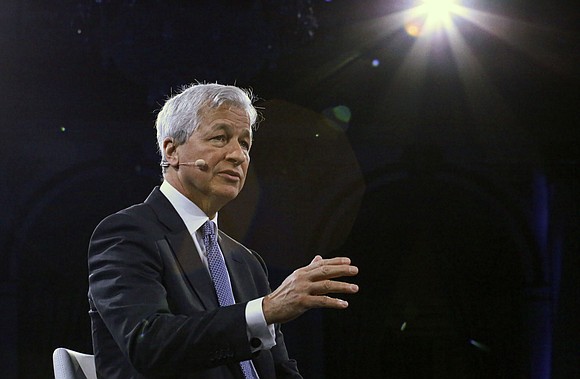Brace yourselves for an economic 'hurricane,' Jamie Dimon says
CNN/Stylemagazine.com Newswire | 6/2/2022, 9:55 a.m.

Originally Published: 01 JUN 22 13:28 ET
Updated: 02 JUN 22 09:25 ET
By Paul R. La Monica, CNN Business
(CNN) -- Jamie Dimon is no meteorologist, but the JPMorgan Chase CEO is predicting an economic "hurricane" caused by the war in Ukraine, rising inflation pressures and interest rate hikes from the Federal Reserve.
"Right now it's kind of sunny, things are doing fine. Everyone thinks the Fed can handle this," Dimon said at a Bernstein conference. "That hurricane is right out there down the road coming our way."
"We just don't know if it's a minor one or Superstorm Sandy. You better brace yourself," Dimon said, adding that JPMorgan Chase is preparing for a "non-benign environment" and "bad outcomes."
Dimon said that the economy is "distorted" by inflation. He's also worried that the Fed is starting to unwind its bond portfolio, a process known as quantitative tightening, at the same time it is raising interest rates. That's something that the market is not prepared for, Dimon said, adding that people will be "writing about [this] in history books for 50 years,"
But the Fed is in a bind. Dimon said the central bank must raise rates because of surging housing prices and other inflation pressures. He stressed that he still thinks the US banking system is in "great shape" and can withstand these challenges.
Dimon also said that JPMorgan Chase is going to do all it can to attract talent to stay on top of the financial world. The CEO said the bank will be "religious" about paying well to keep its best workers.
Dimon's more cautious outlook comes just a few days after he sounded a little more upbeat about what's next for the markets and the economy.
Speaking at an analyst meeting at the end of May, Dimon said that there were "big storm clouds" on the horizon for the economy but expressed hope that they may "dissipate."
"If it was a hurricane, I would tell you that," Dimon said at the analyst meeting, adding that current conditions also aren't like the "tsunami" that banks faced in 2007 and 2008 when the mortgage market was melting down and several large financial institutions collapsed.
Dimon may not be predicting a tsunami just yet. But a hurricane is bad enough, and certainly more damaging than a regular storm. Dimon said he is also worried about the conflict in Ukraine and the impact it will have on oil prices, predicting on Wednesday that it's in the cards for crude prices to eventually spike as high as $150 to $175 a barrel.
"Wars go bad. They go south. They have unintended consequences," he said, adding that this conflict will continue to roil the commodity markets around the world, impacting the prices of oil, gas and wheat.



